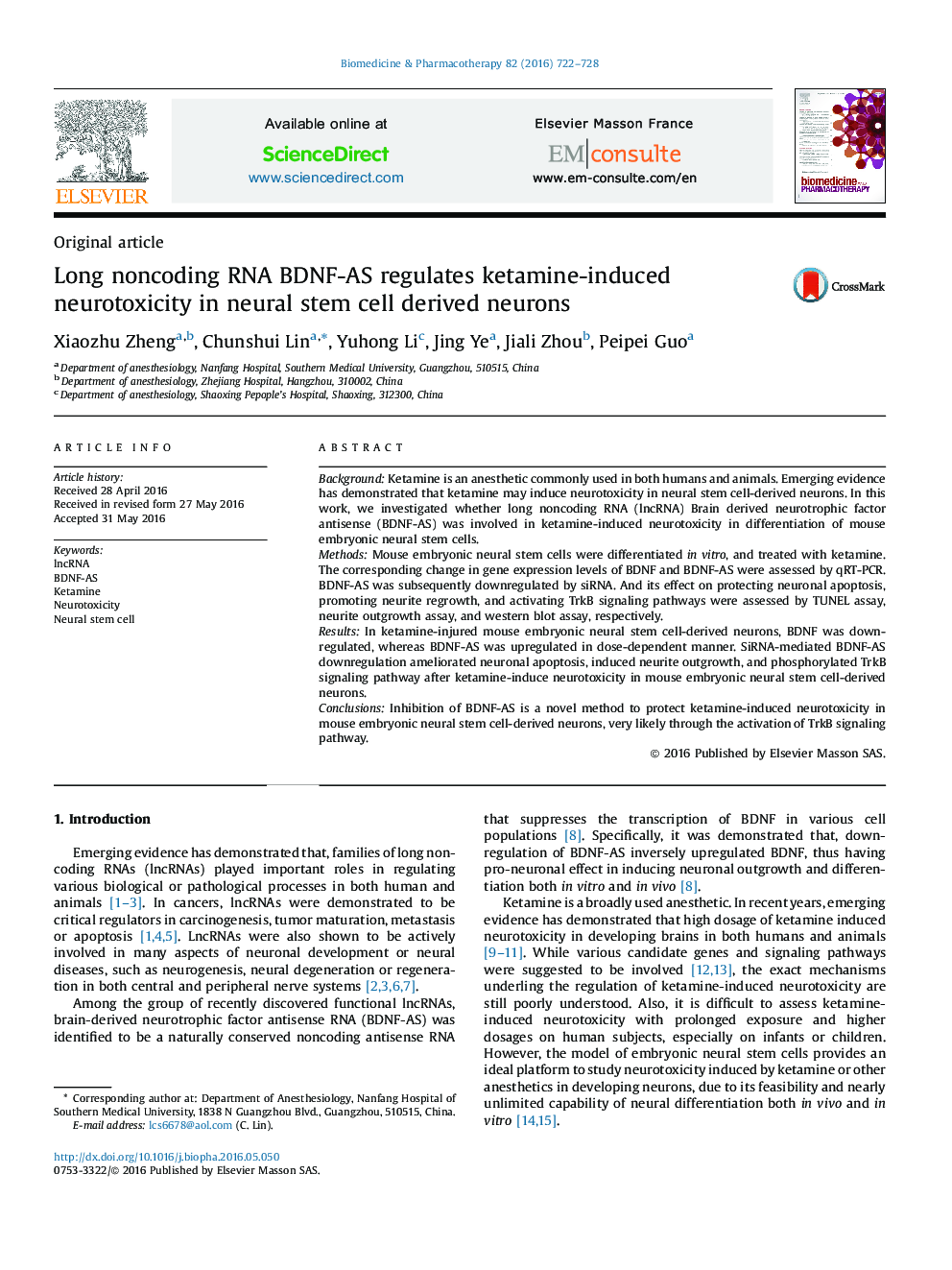| Article ID | Journal | Published Year | Pages | File Type |
|---|---|---|---|---|
| 2524620 | Biomedicine & Pharmacotherapy | 2016 | 7 Pages |
BackgroundKetamine is an anesthetic commonly used in both humans and animals. Emerging evidence has demonstrated that ketamine may induce neurotoxicity in neural stem cell-derived neurons. In this work, we investigated whether long noncoding RNA (lncRNA) Brain derived neurotrophic factor antisense (BDNF-AS) was involved in ketamine-induced neurotoxicity in differentiation of mouse embryonic neural stem cells.MethodsMouse embryonic neural stem cells were differentiated in vitro, and treated with ketamine. The corresponding change in gene expression levels of BDNF and BDNF-AS were assessed by qRT-PCR. BDNF-AS was subsequently downregulated by siRNA. And its effect on protecting neuronal apoptosis, promoting neurite regrowth, and activating TrkB signaling pathways were assessed by TUNEL assay, neurite outgrowth assay, and western blot assay, respectively.ResultsIn ketamine-injured mouse embryonic neural stem cell-derived neurons, BDNF was downregulated, whereas BDNF-AS was upregulated in dose-dependent manner. SiRNA-mediated BDNF-AS downregulation ameliorated neuronal apoptosis, induced neurite outgrowth, and phosphorylated TrkB signaling pathway after ketamine-induce neurotoxicity in mouse embryonic neural stem cell-derived neurons.ConclusionsInhibition of BDNF-AS is a novel method to protect ketamine-induced neurotoxicity in mouse embryonic neural stem cell-derived neurons, very likely through the activation of TrkB signaling pathway.
